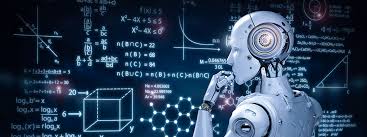A Self-Study Guide for AI/Machine Learning: Inspired by US University Curricula
This white paper outlines a comprehensive self-study guide for individuals interested in delving into the field of Artificial Intelligence (AI) and Machine Learning (ML). It draws inspiration from the core textbooks and curriculum commonly used in graduate-level AI/ML programs at top US universities.
1. Foundational Mathematics & Statistics
- Linear Algebra:
- Textbook: Linear Algebra and Its Applications by David C. Lay, Steven R. Lay, and Judi J. McDonald
- Key Concepts: Vectors, matrices, eigenvalues, eigenvectors, singular value decomposition, linear transformations.
- Probability and Statistics:
- Textbook: All of Statistics: A Concise Course in Statistical Inference by Larry Wasserman
- Key Concepts: Probability distributions, statistical inference, hypothesis testing, Bayesian inference, maximum likelihood estimation.
- Calculus:
- Textbook: Calculus: Early Transcendentals by James Stewart
- Key Concepts: Derivatives, integrals, multivariable calculus, optimization techniques (gradient descent).
2. Core Machine Learning Concepts
- Textbook: Pattern Recognition and Machine Learning by Christopher M. Bishop
- Key Concepts: Supervised learning (regression, classification), unsupervised learning (clustering, dimensionality reduction), probabilistic graphical models, support vector machines (SVM), decision trees, ensemble methods.
- Textbook: Elements of Statistical Learning: Data Mining, Inference, and Prediction by Trevor Hastie, Robert Tibshirani, and Jerome Friedman1
- Key Concepts: Statistical learning theory, linear models, non-linear models, model selection and evaluation, regularization.
3. Deep Learning
- Textbook: Deep Learning by Ian Goodfellow, Yoshua Bengio, and Aaron Courville
- Key Concepts: Neural networks, deep neural networks, convolutional neural networks (CNNs), recurrent neural networks (RNNs), deep reinforcement learning.
- Textbook: Hands-On Machine Learning with Scikit-Learn, Keras & TensorFlow by Aurélien Géron
- Key Concepts: Practical implementation of deep learning algorithms using popular Python libraries.
4. Advanced Topics
- Natural Language Processing (NLP):
- Textbook: Speech and Language Processing by Daniel Jurafsky and James H. Martin
- Key Concepts: Language modeling, text classification, sentiment analysis, machine translation, natural language generation.
- Computer Vision:
- Textbook: Computer Vision: Algorithms and Applications by Richard Szeliski
- Key Concepts: Image processing, object detection, image segmentation, image recognition, deep learning for computer vision.
- Reinforcement Learning:
- Textbook: Reinforcement Learning: An Introduction by Richard S. Sutton and Andrew G. Barto
- Key Concepts: Markov Decision Processes (MDPs), value functions, policy gradients, deep reinforcement learning.
5. Research & Practical Projects
- Research Papers: Stay updated with the latest research in AI/ML by reading research papers from top conferences (NeurIPS, ICML, ICLR).
- Personal Projects: Implement algorithms, build models, and work on personal projects to gain practical experience.
- Kaggle Competitions: Participate in Kaggle competitions to apply your knowledge and learn from the community.
6. Tools & Technologies
- Programming Languages: Python (with libraries like NumPy, Pandas, Scikit-learn, TensorFlow, PyTorch)
- Cloud Computing Platforms: AWS, Azure, Google Cloud Platform (for deploying and scaling models)
- Data Visualization Tools: Matplotlib, Seaborn, Tableau
7. Continuous Learning
- Online Courses: Platforms like Coursera, edX, and Udacity offer a wide range of AI/ML courses.
- Online Communities: Engage with the AI/ML community through forums, online discussions, and meetups.
- Stay Updated: Continuously learn about the latest advancements in AI/ML by following research publications, attending conferences, and engaging with the research community.
Disclaimer: This is a general roadmap and may not perfectly align with specific university curricula. The choice of textbooks and the depth of coverage can vary significantly across institutions. This guide is intended to provide a comprehensive framework for self-study and should be adapted based on individual learning styles and goals.
This information is for general knowledge and informational purposes only.



